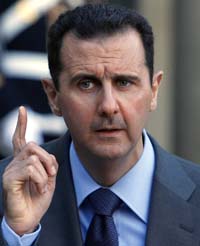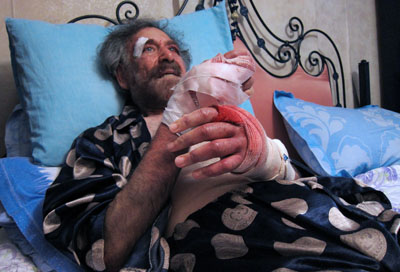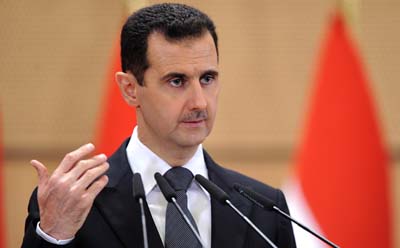Risk and reporting
Last night at London’s Frontline Club, CPJ launched its global survey of press freedom conditions, Attacks on the Press. The topic of discussion was the safety of journalists covering conflict and the panel consisted of journalist and documentarian Jenny Kleeman, ITN safety guru Colin Pereira, and journalist and filmmaker Maziar Bahari, who was imprisoned in…
Google+, real names and real problems
At the launch of Google+, Google’s attempt to create an integrated social network similar to Facebook, I wrote about the potential benefits and risks of the new service to journalists who use social media in dangerous circumstances. Despite early promises of relatively flexible terms of service at Google+, the early days of implementation were full…

Jacquier’s killing raises chilling questions on Syria
The killing on January 11 of a French TV reporter has sent a chill through the international press corps trying to cover the violence in Syria. Gilles Jacquier, 43, who was on assignment for the French public service channel France 2, was a seasoned journalist and the laureate of France’s most prestigious journalism prizes. As…
When a bug fix can save a journalist’s life
One of the most exciting aspects of working on Internet technologies is how quickly the tools you build can spread to millions of users worldwide. It’s a heady experience, one that has occurred time and again here in Silicon Valley. But there’s also responsibility that attaches to that excitement. For every hundred thousand cases in…

The ‘new’ Syrian media law is nothing new
On August 28, President Bashar al-Assad approved a new media law that purportedly upholds freedom of expression and bans the arrest of journalists. Yet less than a week later, on Saturday, a Syrian journalist and contributor to the pan-Arab daily Al-Hayat was arrested, CPJ reported. Just two days before the endorsement of the law, Syrian…

Smashing the hand that holds the pen
Ali Ferzat likes to work through the night. His attackers knew that. Masked men grabbed Syria’s most famous cartoonist as he set out for home from his office near Damascus’ central Umayyad Square at around 5 a.m. on Thursday, and bundled him into a van. A few hours later, he lay in a bloody heap…

Syria’s Assad gives tacit OK to online attacks on press
On Monday, Syrian President Bashar al-Assad gave his third public address on the vast unrest that has roiled his nation. Reporters described him as nervous. He, the reporters, or perhaps both, may have been thinking about the significance of speech No. 3. Both Tunisia’s Zine El Abidine Ben Ali and Egypt’s Hosni Mubarak were overthrown…
Beyond the Amina hoax: Real cases in the Middle East
A Gay Girl in Damascus was a personal blog, said to be written by a young woman named Amina Arraf, that appeared to give an everyday record of being a lesbian in modern-day Syria. Following the events of the Arab Spring, as the political situation in Syria grew less stable, the blog attracted more readers…
Syrian Facebook users develop strategies against online threats
Jennifer Preston in the New York Times reports on some stories that we also have been hearing from Syrian Internet use. She documents incidents of passwords extracted by force, and the deliberate defacing of social networking pages by security forces, apparently in order to sabotage reports of unrest from that country. A man in his…
Parvaz says Syria detained her for Al-Jazeera work
Al-Jazeera has interviewed Dorothy Parvaz, the network journalist who was held for 19 days in Syria and Iran. Parvaz describes how the Syrian government told her at first that she was believed to be a U.S. spy, but later it became clear, she said, that she was being held because she worked for the network.…